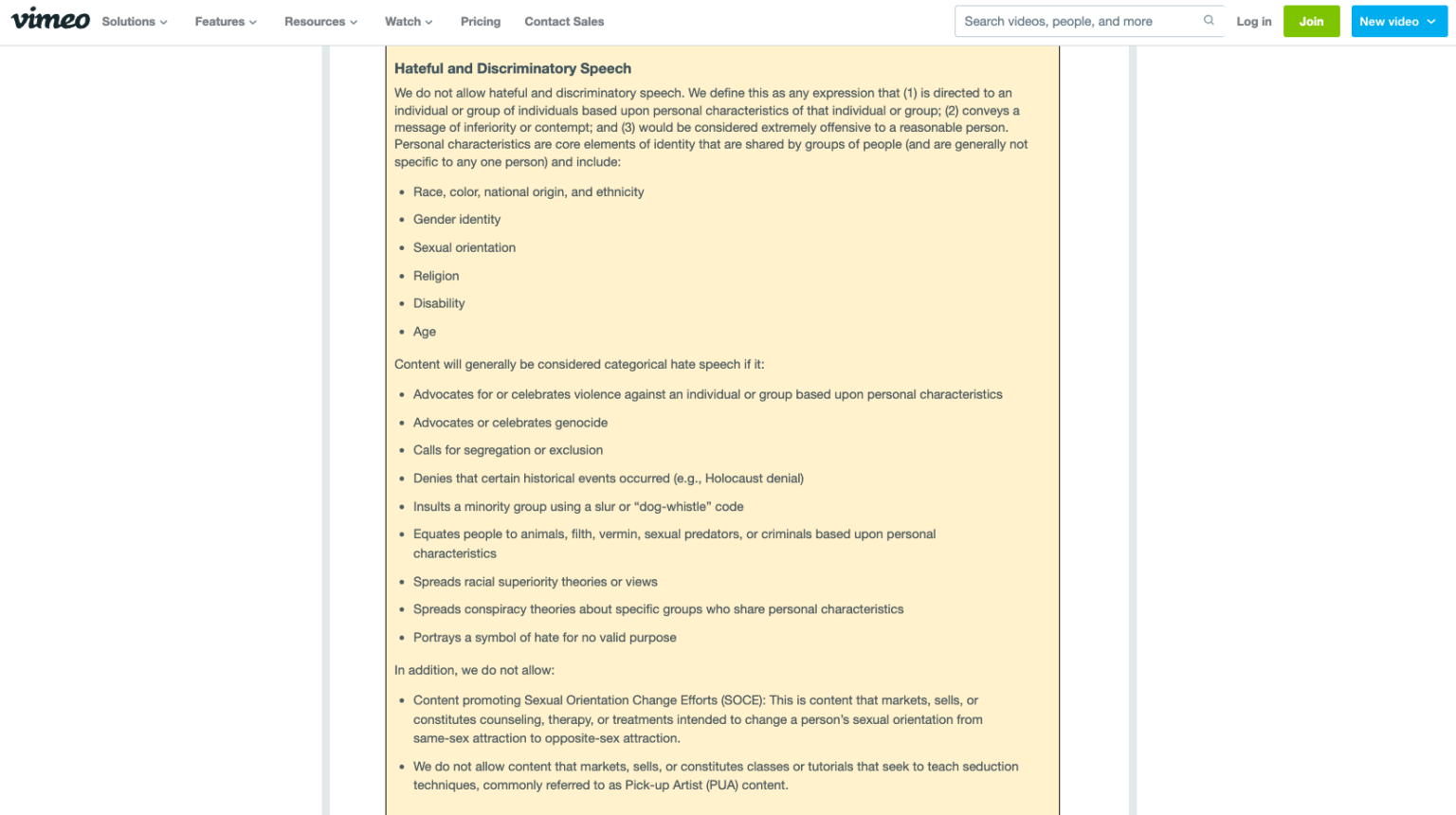Independent filmmaker Taylor Reece didn’t set out to spark a conversation about Big Tech censorship with her recent documentary, “Dead Name,” but the issue was brought to the forefront after hosting service Vimeo recently booted the film from its platform.
Telling the story of three families whose children underwent life-altering surgeries and cross-sex hormonal regimens, the film was available for rental or purchase at Vimeo from Dec. 20 until Jan. 23.
That’s when Vimeo nixed the video—which is now available at www.deadnamedocumentary.com—citing its policy prohibiting “discriminatory and hateful conduct.”
The Daily Signal has the story:
Reece suggested that transgender activists targeted Vimeo in a pressure campaign, urging the company to remove the video. She said the video had been up for about 34 days before the company removed it.
“We can confirm that Vimeo removed the video in question for violating our Terms of Service prohibiting discriminatory or hateful content,” Vimeo told The Daily Signal in an email statement. “We strive to enforce these policies objectively and consistently across our platform. Vimeo has notified the account owner and all purchases have been refunded.”
Vimeo suggested that its Trust & Safety team had reviewed the documentary. The company declined to comment on just how the documentary had violated its “hateful conduct” prohibition and did not respond when asked if similar videos published by The Daily Signal also violated the policy.
“Vimeo’s global Trust & Safety team uses a number of tools and methods to moderate our platform of harmful, hateful, and misleading content in accordance with our Acceptable Use Policy,” the company added. “In addition to conducting regular account reviews and closely monitoring repeat infringers, our T&S team evaluates every video flagged by our users. In the event we determine that an account has uploaded content that violates our terms, we will take appropriate action including content removal and, potentially, account termination.”
The policy forbids “hateful and discriminatory speech,” which Vimeo defines as speech directed to an individual or group based on certain personal characteristics, conveying a message of inferiority or contempt, and which “would be considered extremely offensive to a reasonable person.” The list of characteristics includes “gender identity.”
The policy forbids speech advocating or celebrating violence, genocide, or segregation, among other things.
As we’ve written before, many businesses maintain broad, undefined terms of service and content polices that afford them wide discretion to deny service or censor content for biased, arbitrary, or unknown reasons.
Of the 50 companies evaluated in the inaugural Viewpoint Diversity Score 2022 Business Index, nearly half (48 percent) hold terms of use policies that, like Vimeo’s, rely on unclear and imprecise restrictions on expression. And it’s this widespread use of vague terminology that’s often used both to establish and zealously guard new orthodoxies on controversial issues like gender identity ideology.
Amazon, for instance, publicizes its refusal to sell “content that we determine is hate speech” and “material we deem inappropriate or offensive.” This gives free rein to Amazon employees who may simply disagree with an author’s point of view to take adverse actions based on a subjective belief that the content is either “hate speech,” “inappropriate,” or “offensive.” That threat becomes apparent when you consider leaked videos of Amazon employees decrying their company’s decision to sell a book written by the Daily Wire’s Matt Walsh—an incident that followed on the heels of Amazon removing a book by conservative intellectual Ryan T. Anderson.
Companies shouldn’t create content moderation terms that invite employees to make subjective judgments about what should or should not be allowed on a social media or video platform. Instead, companies can protect the free exchange of ideas by identifying and eliminating unclear or imprecise restrictions on what customers or users can say or do.
Check out our resource, “The Risk of Unclear or Imprecise Terms in Product or Service Policies” to learn more about what companies can do.

